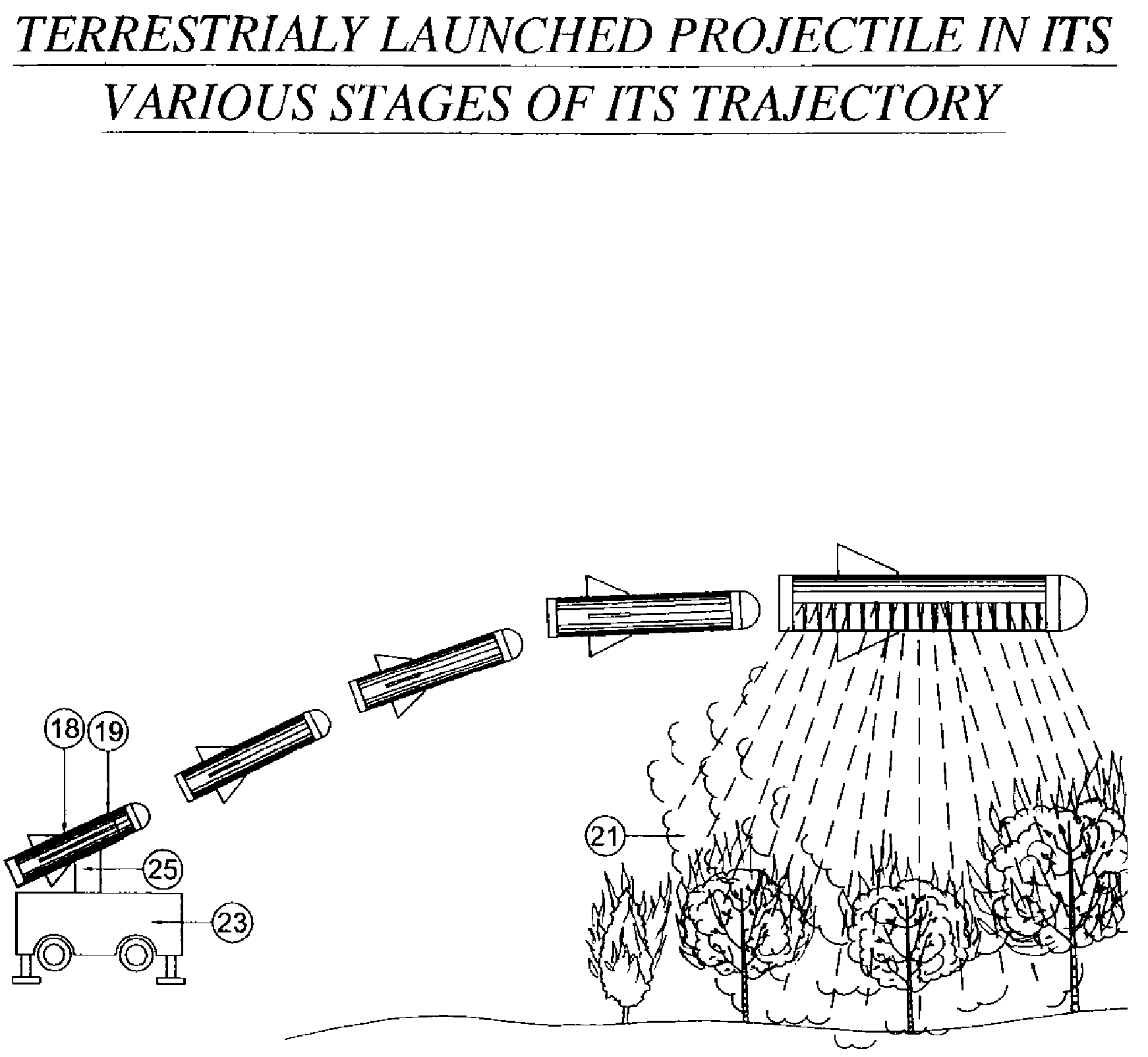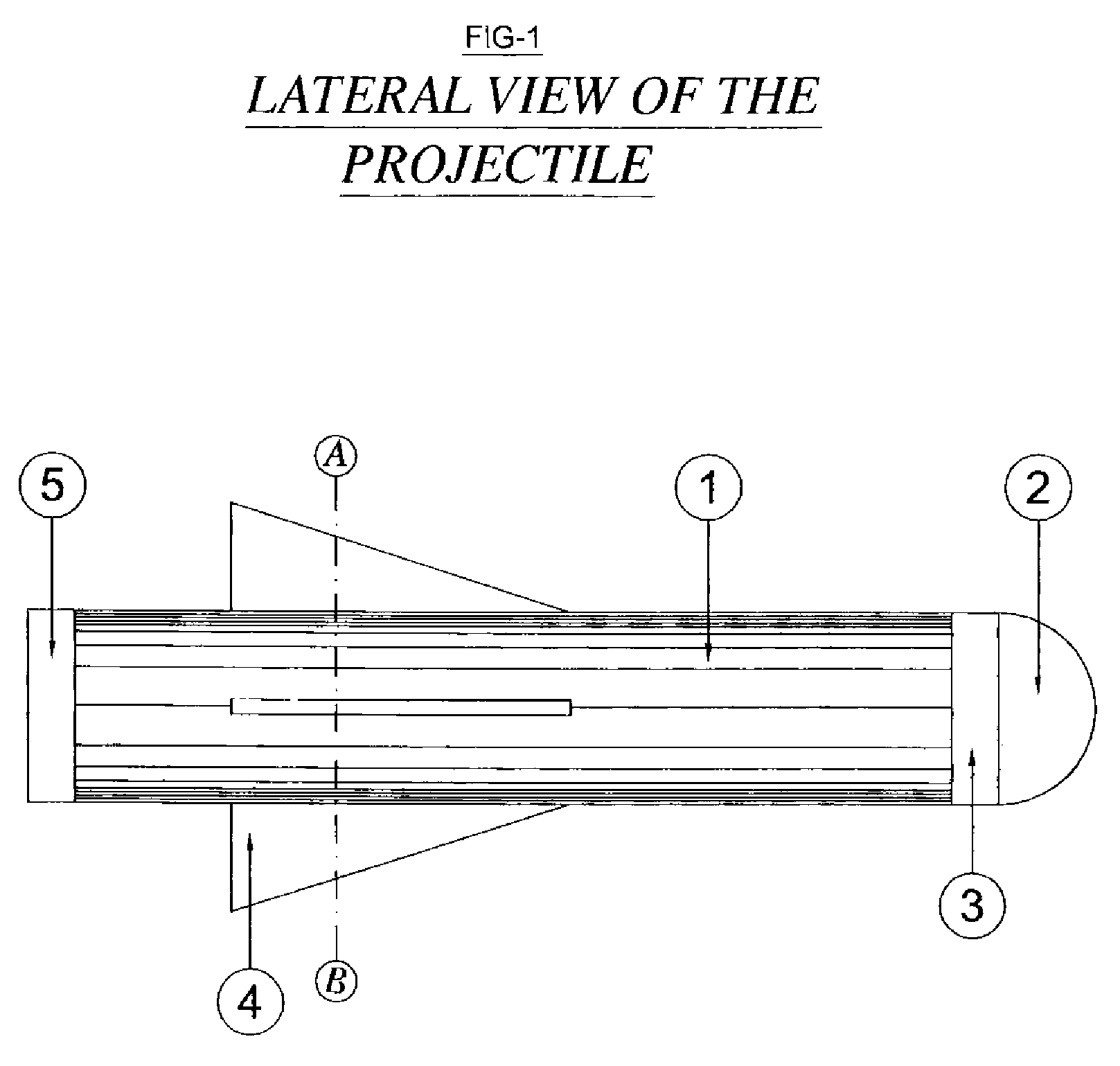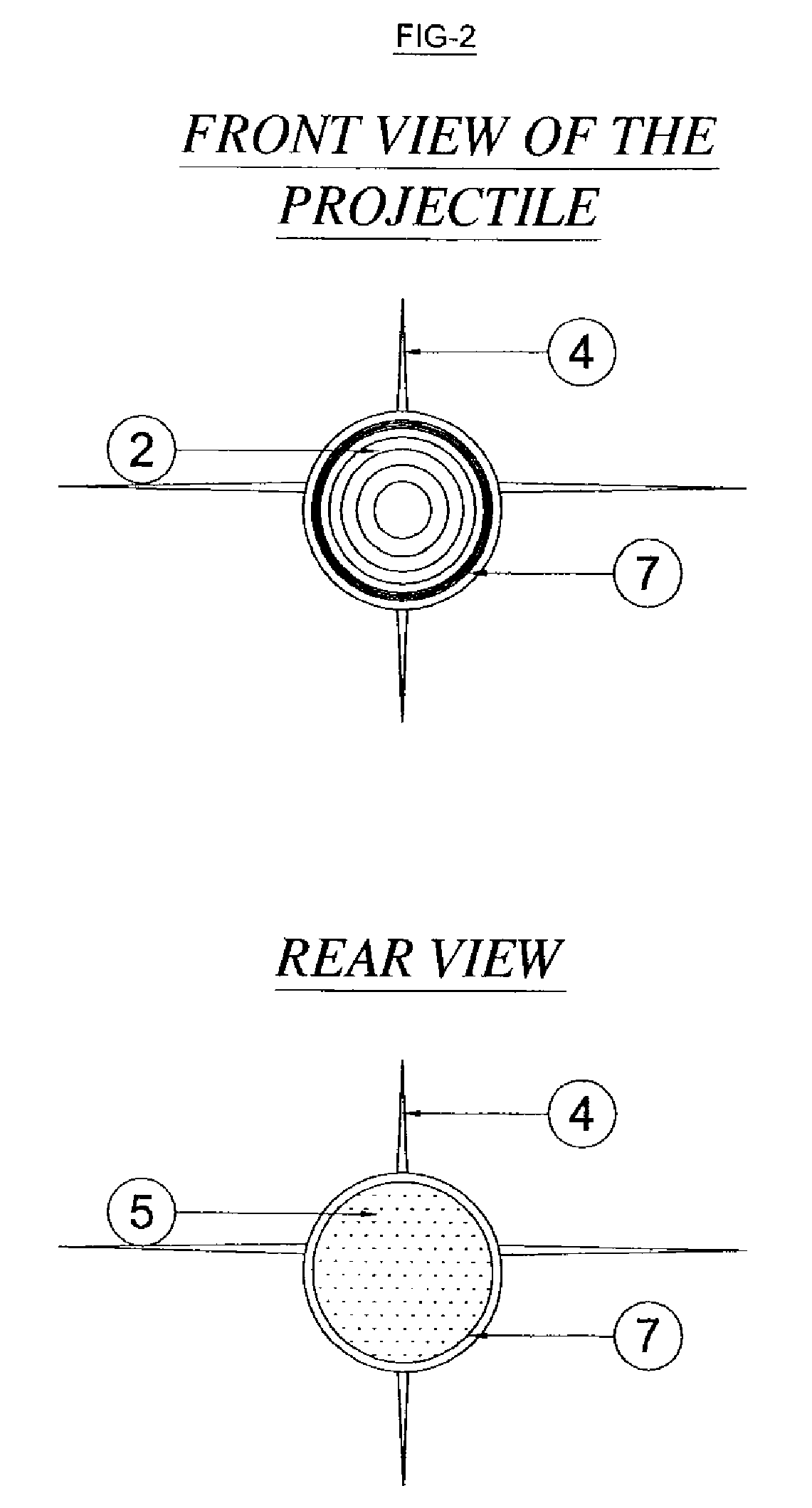Fire extinguishing by explosive pulverisation of projectile based frozen gases and compacted solid extinguishing agents
- Summary
- Abstract
- Description
- Claims
- Application Information
AI Technical Summary
Benefits of technology
Problems solved by technology
Method used
Image
Examples
Embodiment Construction
[0033] A preferred embodiment of the present invention, as well as objects, aspects, features and advantages, will be apparent and better understood from the following description in greater detail, of the illustrative and preferred embodiments thereof, which is to be read with reference to the accompanying drawings. The accompanying drawings form a part of the specification, in which like numerals are employed to designate like parts of the same.
Structure
The Device
[0034] This invention calls for a device (FIG. 1 and FIG. 3) consisting of a projectile made of metallic housing 1, filled with a mixture of frozen inert gases and / or other extinguishing agents 11, embedded with an explosive charge 13 and a method by which this projectile is launched over fires and the embedded explosive is made to explode at a predetermined height the result of which is total and permanent annihilation of fires.
[0035] With reference to the figures and drawings of the present invention, which denotes...
PUM
 Login to View More
Login to View More Abstract
Description
Claims
Application Information
 Login to View More
Login to View More - R&D
- Intellectual Property
- Life Sciences
- Materials
- Tech Scout
- Unparalleled Data Quality
- Higher Quality Content
- 60% Fewer Hallucinations
Browse by: Latest US Patents, China's latest patents, Technical Efficacy Thesaurus, Application Domain, Technology Topic, Popular Technical Reports.
© 2025 PatSnap. All rights reserved.Legal|Privacy policy|Modern Slavery Act Transparency Statement|Sitemap|About US| Contact US: help@patsnap.com



